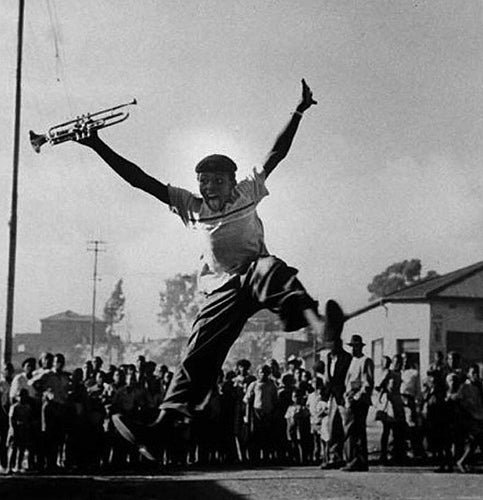
A Revolution in South African Music History
Share
How Vinyl Transformed Music History in South Africa
Vinyl records are more than just a medium for music; they’ve played a huge role in shaping music history worldwide, and South Africa is no exception. If you’ve ever felt the crackle of a record or admired the beautiful album art, you know there’s something magical about vinyl. But how did vinyl become such a key player in South Africa’s music scene?
The Early Days: Vinyl's Arrival
It all started in the 1940s when vinyl records made their way into South Africa. Before that, music was mostly heard on radio or played on early gramophones. When vinyl records arrived, they brought with them a new way to experience music. They were durable, had better sound quality, and they offered people the chance to own their music. No longer did South Africans have to wait for their favorite tunes to play on the radio – they could now bring those sounds into their homes.
The 60s and 70s: The Rise of South African Music
By the 60s and 70s, vinyl had solidified its place in South Africa’s music scene. It wasn’t just about international music anymore. South African artists were using vinyl as their medium to share their unique sounds. Genres like jazz, kwaito, and later house music, were recorded on vinyl, and these records became symbols of South African culture.
It was also during this time that South African music began to make waves internationally. Icons like Hugh Masekela and Miriam Makeba’s records were not just popular at home but were being listened to around the world. The freedom that vinyl gave musicians was clear – they could record, produce, and distribute their music independently of the mainstream channels.
The Struggle Years: Censorship and Resistance
Of course, it wasn’t all smooth sailing. During apartheid, the government imposed strict censorship laws that affected the music industry. Many songs with political messages were banned, and artists found it challenging to have their work heard. But vinyl became an act of defiance. Despite the government’s efforts, records from politically charged artists, like Brenda Fassie, Johnny Clegg, and even the early hip-hop acts, found their way to the public. Vinyl was a way to keep those voices alive, and it became a symbol of resistance.
The 90s and Early 2000s: Decline and Digital Rise
By the 90s, with the rise of CDs and later MP3s, vinyl started to fade out. Digital formats made music more portable, and CDs became the dominant choice for music lovers. Vinyl was seen by many as an old-fashioned format, and it looked like its time had passed.
However, just as quickly as it declined, vinyl made a comeback in the early 2000s. A new generation of music enthusiasts and collectors started rediscovering vinyl, not just for the sound, but for the experience it provided. The ritual of flipping through records, the larger-than-life album art, and that unmistakable sound became something sought after by DJs, collectors, and audiophiles.
Vinyl's Revival: A New Era for South Africa
Fast forward to today, and vinyl is not only back – it’s thriving. In South Africa, there’s been a resurgence of interest in vinyl records. Young South Africans are reconnecting with the sounds of the past, and old-school artists are seeing a revival in their popularity. Whether it's through local record shops or vinyl fairs, there’s a clear appreciation for the medium that goes beyond nostalgia.
Record labels, both big and small, are now pressing vinyl records again, and new South African artists are embracing the format. The demand for vinyl is growing, with music lovers looking to experience sound in a more tangible way. In fact, vinyl is not just for collectors anymore; it’s becoming a mainstream format that appeals to people of all ages. The distinct sound and physicality of the records resonate with an audience that wants more than just digital streaming.
Why Vinyl Matters
So, why does vinyl matter in South Africa? For starters, it represents a piece of musical history. It’s a reminder of the struggle, resilience, and creativity that’s shaped the music we listen to today. It’s a testament to the artists who fought to have their voices heard, and to the people who supported them, even when it wasn’t easy.
Vinyl also brings music lovers closer to the artists they admire. There’s something about holding a record, placing the needle on the groove, and listening to an album from start to finish that digital formats just can’t replicate. It’s an experience – one that creates a deeper connection with the music.
Looking Forward
The resurgence of vinyl in South Africa shows no signs of slowing down. With more and more people rediscovering this format, it’s clear that vinyl is here to stay. South African music has a rich history, and vinyl will continue to be a key part of that story. For those who love music, vinyl offers something special: a connection to the past, the present, and the future of South African sound.





